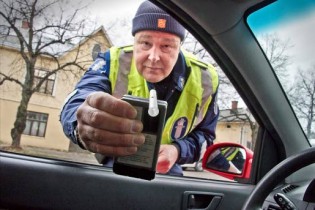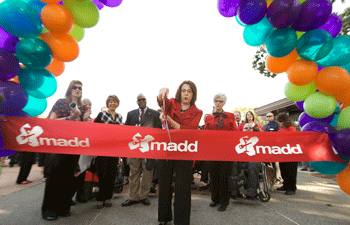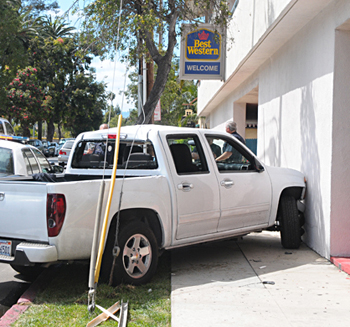 A new program aimed to treat hardcore drunk driving offenders makes an attempt to prevent repeat offenses by simply keeping them sober.Harris County, Texas is intensifying the SOBER Court program, and is funding overtime for 14 deputies to participate using seized assets from criminals. The program involves random, surprise home inspections, in which a deputy will perform breath tests on defendants and inspect for non-compliance with the program, which requires no possession of alcohol or illegal drugs. Offenders must also meet with a DWI judge twice a month and use an alcohol-monitoring device 3-4 times a day from work, home, or their vehicle.
A new program aimed to treat hardcore drunk driving offenders makes an attempt to prevent repeat offenses by simply keeping them sober.Harris County, Texas is intensifying the SOBER Court program, and is funding overtime for 14 deputies to participate using seized assets from criminals. The program involves random, surprise home inspections, in which a deputy will perform breath tests on defendants and inspect for non-compliance with the program, which requires no possession of alcohol or illegal drugs. Offenders must also meet with a DWI judge twice a month and use an alcohol-monitoring device 3-4 times a day from work, home, or their vehicle.
Harris County Sheriff Adrian Garcia addressed new graduates of the SOBER Court program, he said, “I will do anything in my power to get Harris County, Texas off the top of the list of DWI-related traffic fatalities in the country.”
In 2009, Harris County had the highest rate of alcohol-related traffic deaths in the country among the nation’s most populous counties.
“We don’t want you before these judges being tried for involuntary manslaughter,” Garcia said. “If you think my deputies or any of these judges are playing, try us. We’ll hold jail space for those of you not listening. We’re going to be extremely serious about your success.”
 D.C. is resuming
D.C. is resuming  The non-profit organization MADD (Mothers Against Drunk Driving) is
The non-profit organization MADD (Mothers Against Drunk Driving) is  An Allegheny County program allows drunk drivers to serve mandatory jail time in a hotel if they meet certain requirements. Known to some as “
An Allegheny County program allows drunk drivers to serve mandatory jail time in a hotel if they meet certain requirements. Known to some as “